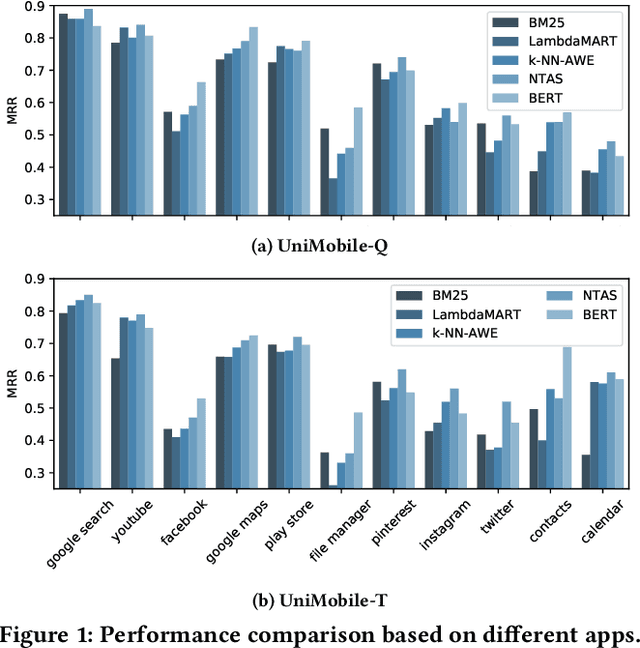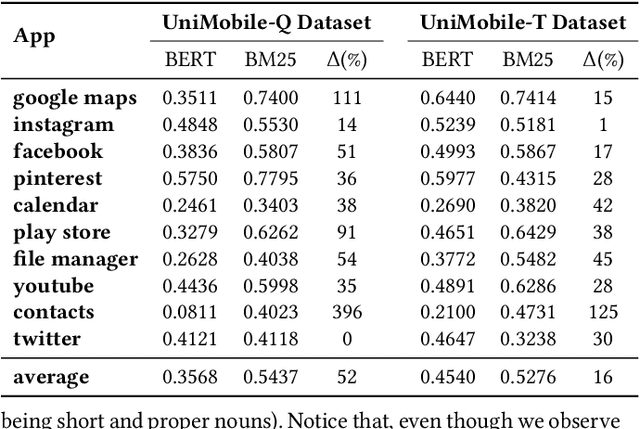BERT for Target Apps Selection: Analyzing the Diversity and Performance of BERT in Unified Mobile Search
Paper and Code
Sep 13, 2021


A unified mobile search framework aims to identify the mobile apps that can satisfy a user's information need and route the user's query to them. Previous work has shown that resource descriptions for mobile apps are sparse as they rely on the app's previous queries. This problem puts certain apps in dominance and leaves out the resource-scarce apps from the top ranks. In this case, we need a ranker that goes beyond simple lexical matching. Therefore, our goal is to study the extent of a BERT-based ranker's ability to improve the quality and diversity of app selection. To this end, we compare the results of the BERT-based ranker with other information retrieval models, focusing on the analysis of selected apps diversification. Our analysis shows that the BERT-based ranker selects more diverse apps while improving the quality of baseline results by selecting the relevant apps such as Facebook and Contacts for more personal queries and decreasing the bias towards the dominant resources such as the Google Search app.
 Add to Chrome
Add to Chrome Add to Firefox
Add to Firefox Add to Edge
Add to Edge